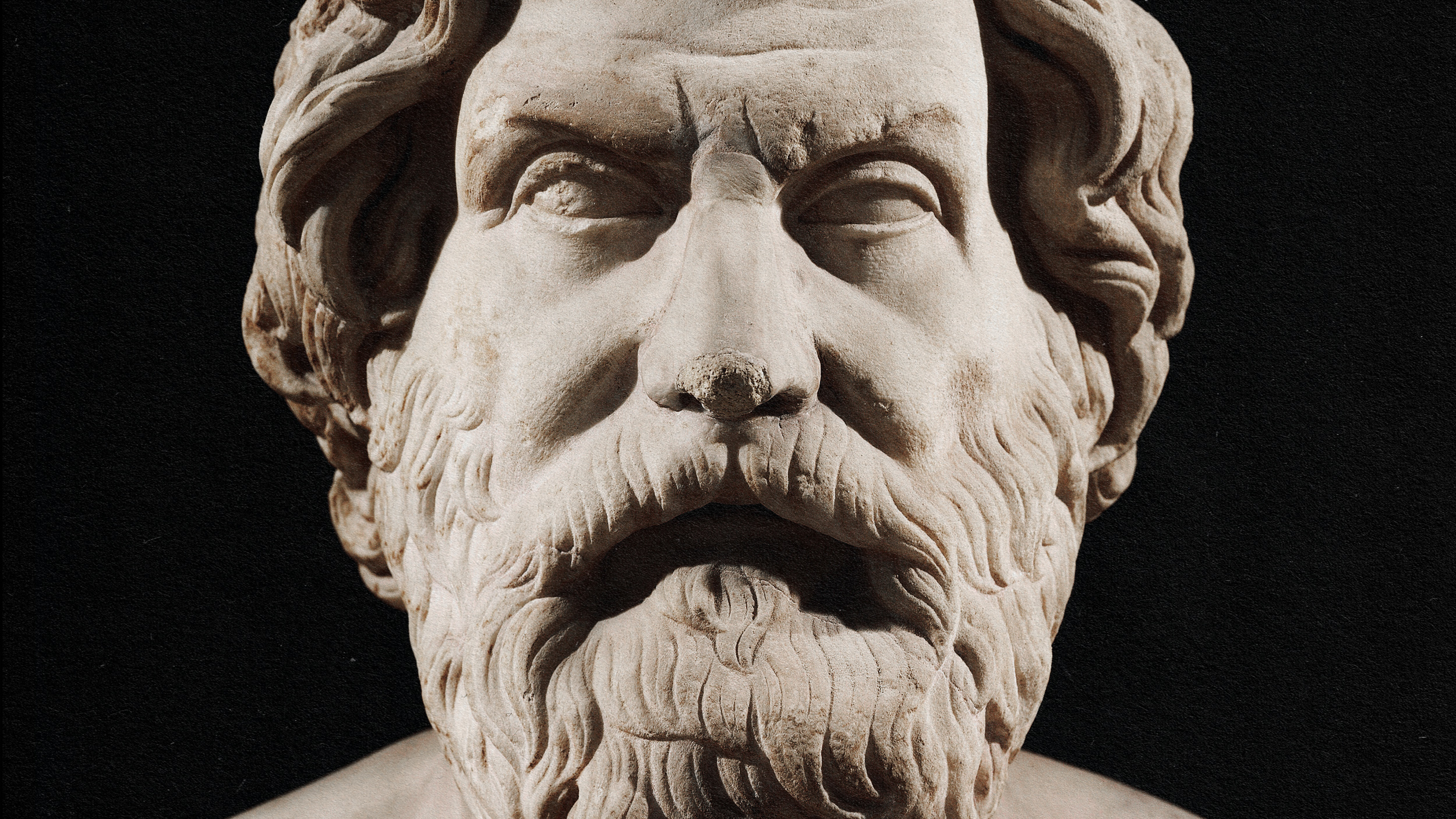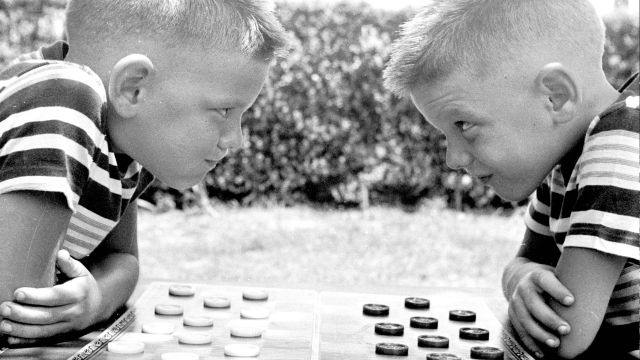5 American philosophers on the meaning of life

The question of what the purpose of life is has bothered philosophers since ancient Greece. The problem endures, and American thinkers have long been involved in the discussion. Here are the ideas of five great American minds on the meaning of life and what they have to teach us.
Ralph Waldo Emerson

(Getty Images)
Emerson was the leading mind behind Transcendentalism, the first purely American school of philosophy. After a brief stint working as a clergyman, Emerson took up writing of all kinds. He is one of the cornerstones of both American thought and literature.
Emerson was a pantheist and believed that God was in everything and everyone. To truly express this divinity, he felt, one has to find who they truly are and then live out their individuality as well as they are able. To do this, Emerson suggests self-reliance, independence, and a wariness of society and its pressures to conform.
Emerson reminds that even the dull and ordinary parts of our lives are filled with divine grace. His individualism, which has inspired people from Nietzsche to Christopher McCandless, encourages us to find who we truly are at heart and then act on that knowledge even if, like Emerson, we are seen as radical because of it.
Leave this hypocritical prating about the masses. Masses are rude, lame, unmade, pernicious in their demands and influence, and need not to be flattered, but to be schooled. I wish not to concede anything to them, but to tame, drill, divide, and break them up, and draw individuals out of them. –The Conduct of Life
Henry David Thoreau

(Getty Images)
Thoreau was a follower of Emerson and his transcendentalist philosophy. He is best known for his book Walden, in which he explains how he moved into a cabin on a plot lent to him by Emerson. There, he resolved to live simply in the woods and see how it compared to life in the modern world. His insights are often profound.
While Thoreau wasn’t really that far from a nearby town and his mother came by to do housework for him from time to time (as mentioned here), his perspectives on the simple life, how we can reduce our dependence on worldly goods, the need for individualism, and the joys of solitude in nature remain important lessons.
Thoreau reminds us that we must examine our lives at every juncture, that progress in science and technology may not be what makes us happy, and that sometimes the simplest things are the best. While his escape to the simple life might have been more of a vacation than anything else, it does show us that technology may not be the path to finding meaning. An excellent overview of his ideas can be found here.
I went to the woods because I wished to live deliberately, to front only the essential facts of life, and see if I could not learn what it had to teach, and not, when I came to die, discover that I had not lived. – Walden
John Dewey

(Getty Images)
Dewey was a philosopher and reformer who worked in many fields and is largely remembered for his work in pragmatism and progressive education. His work often focused on how to help individuals live well in a democratic society and how to make education more than just job training.
Dewey encourages us to stop looking at education as preparation for a job. Rather, it must be considered as a tool to help giving meaning to our lives. To do this, education must encourage autonomy, student involvement, active inquiry, and cover a wide field of subjects so the student can find what they enjoy doing. This, he argues, will not only improve our educational system and our democracy but will also allow us to live meaningful lives.
Dewey asks us to see ourselves are more than just technical staff in a modern economy, but as people with talents for art, science, and the humanities as well. To properly live full, meaningful lives we must educate ourselves for the entirety of life.
Cease conceiving of education as mere preparation for later life, and make it the full meaning of the present life.
Thomas Jefferson

(Getty Images)
As the principal author of the Declaration of Independence, a founding father of the United States, the founder of the University of Virginia, and third president of the United States, Jefferson was a busy man. While he never wrote out a grand tract on the meaning of life, he did give us some insight on a good one.
Jefferson declared himself to be an epicurean in a letter to a friend, that philosophy blends elements of both hedonistic and eudemonic happiness in a way that promotes the happiness of the individual without resorting to debauchery. It is this sort of happiness that Jefferson himself strived for in his daily life.
He also invoked epicurean ideas in his praise for the life of the independent farmers. Self-reliance, democratic government, and live in small communities would come not only to embody Jeffersonian Democracy, by the United States itself for the first part of its history. Jefferson reminds us to seek out the good life with an eye towards independence and a not too complicated life of progress.
We hold these truths to be self-evident, that all men are created equal, that they are endowed by their Creator with certain unalienable Rights, that among these are Life, Liberty and the pursuit of Happiness. – The Declaration of Independence
Robert Nozick

(Harvard Gazette)
Robert Nozick was a philosopher at Harvard who is best known for his lone venture into political philosophy Anarchy, State, and Utopia. In that book, he briefly touches on one of the more popular ideas for the meaning of life; that we should maximize our pleasurable experiences and minimize our unpleasant ones.
Nozick asks us to imagine that a team of neuroscientists have invented a machine that allows you to live in a simulated world with nothing but enjoyable experiences in it. The world inside the machine is perfectly lifelike and the only catch is that nothing inside is real. Think the Matrix, but much more enjoyable for people living inside of it.
Nozick points out that if all we really want is to feel pleasure, then we have no reason to not get in. However, most of us would say that we have reservations about living in the false reality. This, he argues, shows that most of us want more than just pleasure in our lives.
While this doesn’t mean that you can’t value a life with pleasure, if you decide not to get into the machine you must think there is more to the meaning of life. He doesn’t give us a prescription for what we should value, however. He instead encourages us to think it out for ourselves.
Wittgenstein, Elizabeth Taylor, Bertrand Russell, Thomas Merton, Yogi Berra, Allen Ginsberg, Harry Wolfson, Thoreau, Casey Stengel, The Lubavitcher Rebbe, Picasso, Moses, Einstein, Hugh Hefner, Socrates, Henry Ford, Lenny Bruce, Baba Ram Dass, Gandhi, Sir Edmund Hillary, Raymond Lubitz, Buddha, Frank Sinatra, Columbus, Freud, Norman Mailer, Ayn Rand, Baron Rothschild, Ted Williams, Thomas Edison, H.L. Mencken, Thomas Jefferson, Ralph Ellison, Bobby Fischer, Emma Goldman, Peter Kropotkin, you, and your parents. Is there really one kind of life which is best for each of these people? –Anarchy, State, and Utopia





